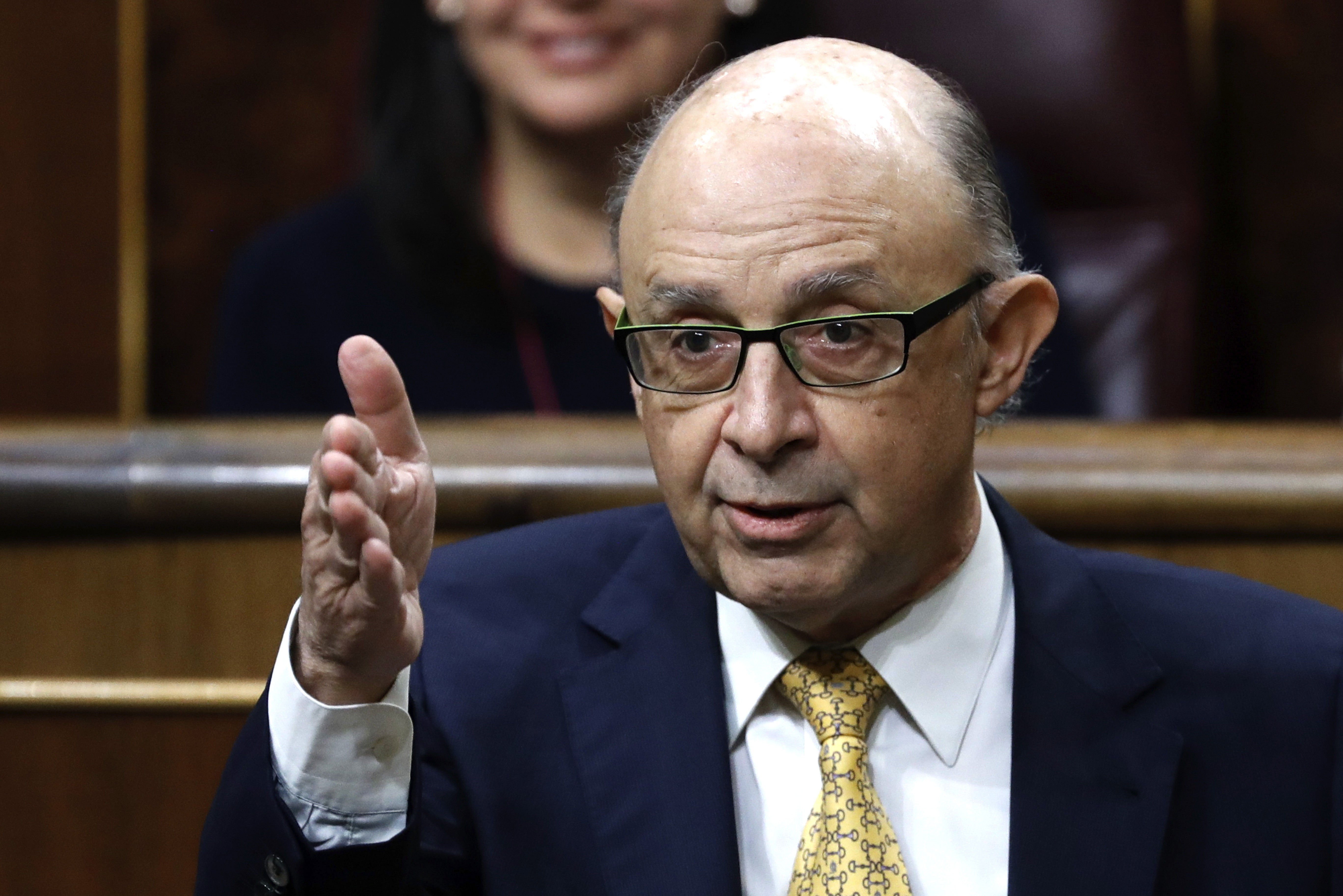The Spanish Treasury minister, Cristóbal Montoro, has redoubled the intervention in the Catalan government's finances two weeks before the 1st October referendum after Catalan vice-president and Economy minister, Oriol Junqueras, announced yesterday that he would stop sending weekly spending reports to the central government. These reports were for Madrid to monitor that not a single euro of public money was going towards the upcoming referendum. Montoro gave a 48-hour ultimatum to Catalonia before he will take over control of the majority of its bills, both for basic services and not, authorising the rest and limiting all debt operations.
"In the face of the manifestly illegal situation, we're setting up a spending control mechanism that it absolutely necessary to warrant the Catalan government's payments, in a way that the position doesn't damage their finances, nor those of the rest of Spain" said the minister in a press conference after this Friday's cabinet meeting. Montoro said that the agreement adopted by the Economic Affairs Commission wasn't an intervention in the government's powers because they wouldn't decide what any money was spent on, but did admit the de facto intervention.
The four measures described by the Treasury secretary are:
1) Catalan president Carles Puigdemont will be sent a requirement to, within 48 hours, communicate a non-availability agreement on the budget linked to spending on public services, which basically means payrolls, social security, education and health. Otherwise, the minister will adopt one. 2) In terms of fundamental public services, Catalonia will have to communicate all its pending payments, which will have to be signed by the General Intervention, an economic management body that responds to the Treasury. 3) The Catalan government will not be able to make any payments that are not sufficiently accredited. 4) All debt operations, including short-term ones, will have to be approved by the minister.
"Who is bothered by checks that their money follows the law? What do they want to do that's so strange that they don't want to communicate it? What bothers you about all that? What are you thinking of paying for?" the minister said in a paternalistic tone. He also noted that the Supreme Court had struck down Junqueras' refusal to send the weekly reports. Montoro said that the process was an assurance that there is no payment against the aims of budgetary stability and would fall within the prevailing legislation.
About the differences between this measure and the conditional one about the Autonomous Liquidity Fund adopted by the same Commission on 21 July, the minister had already said in a speech in the Spanish Congress some weeks ago that it wouldn't enter into force. "That measure was an informational check" he said about the idea, originally aimed at blocking spending on the referendum. He then also detailed his thesis that "secessionist politicians are sinking Catalonia" and that's why he believes it necessary to intensify checks.
In this context, Spanish government sources say that the central Executive has spoken with the leader of PSOE (Spanish Socialist Workers' Party), Pedro Sánchez, and the leader of Ciudadanos (Citizens), Albert Rivera, to update them on the issue. They are said to "agree" with the decision, based on the idea that the referendum "is illegal". Even so, Montoro announced that he will soon ask to appear in the Congress to "explain the content and reach of this measure to all the political parties". He added that, once the 48 hours are up, it will be next week when the de facto checks enters into effect.

